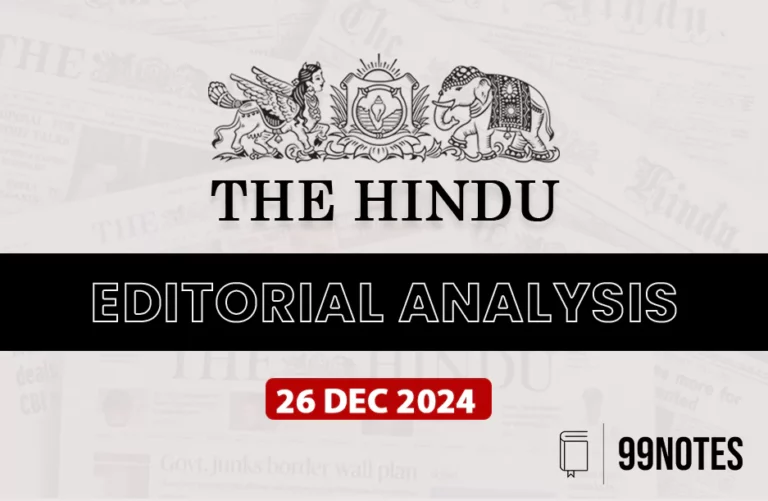23 December 2024 : Daily Answer Writing
Q1) Discuss the role of the Securities and Exchange Board of India in
ensuring the integrity of the markets and protecting the interests of
the investors.
(150 Words/10 Marks)
Answer:
SEBI is statutory body constituted under the Securities and Exchange Board of India Act (1992) to regulate the capital market of India. It is entrusted with protecting the interest of investors and regulating and promoting the securities and commodities market.
Role of SEBI in ensuring the integrity of the markets and protecting the interests of the investors:
- Regulatory role: (a) oversees the functioning of stock exchanges, clearing corporations, and depositories; (b) regulates intermediaries such as stockbrokers, portfolio managers, mutual funds etc.; (c) scrutinizes companies for IPO prospects; (d) enforces corporate governance standards.
- Monitoring role: (a) monitor trading activities and detect suspicious transactions e.g., insider trading, market manipulation, and other fraudulent activities; (b) ensure that listed companies follow the regulatory norms;
- Protecting investors: (a) Promote fair market and trading practices + reduction of malpractices; (b) create awareness among investors; (c) implements margin requirements and circuit breakers to manage volatility and protect retail investors;
- Grievance redressal facilitation for all stakeholders including investors.
- Quasi-judicial powers: (a) conduct enquiries, impose penalties, and even hear appeals at the Securities Appellate Tribunal (SAT); (b) It has the power to seek information, such as call data records and books of accounts, from any person related to the securities market and can even issue search and seizure orders.
However, there are issues and challenges with the working of SEBI:
- Disproportionate power compared similar institutions [like the SEC in the USA]: (a) creates scope for arbitrary use of power leading to fear within the business community; (b) leads to serious restraints upon businesses and shift the burden of proof upon the defendant.
- Policy and regulation: (a) apprehensions that SEBI focuses excessively on regulation of market conduct rather than prudential regulation; (b) reactive rather than proactive policies of SEBI have led to reoccurrence of issues [such as insider trading].
- Inadequate investor protection: (a) SEBI’s measures have not been entirely effective in preventing large-scale scams and frauds [e.g., National Spot Exchange Limited scam highlighted significant gaps in investor protection and regulatory oversight]
- Accountability: (a) near-absolute powers lead to wide discretion and unaccountability, therefore, compromising the principle of separation of power; (b) concerns about the transparency of SEBI’s processes and decision-making criteria. (c) Irresponsible statements by SEBI chairman often create market distortions and bearish atmosphere in the markets.
5. Regulatory overlaps: (a) overlap in powers and functions with other regulatory authorities [e.g., criticism against coordination between SEBI and RBI during the IL&FS crisis].
For more such UPSC related Mains Answer Writing, Check Out 21 December 2024 : Daily Answer Writing

